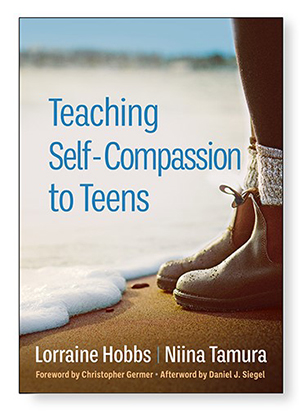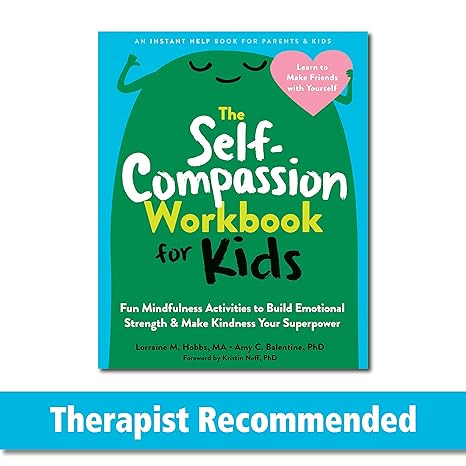Our vision is to encourage young people to explore and deepen an awareness of self through mindfulness training. We teach a curriculum that is designed to support social and emotional learning and cultivate awareness of stress reactivity in children and adolescents. Mindfulness-based practices inspire discernment in decision-making and lead to healthier and happier choices. These experiential programs offer youth, and the families who care for them, an opportunity to discover their capacity for a deeper purpose and more meaningful connection to themselves and the world around them.
Check out our work in the local schools!
Watch this video about our partnership with La Mesa-Spring Valley School District.
If you want us to come to your school and teach mindfulness to the students and/or teachers, please email us at mindfulness@health.ucsd.edu.
- Mindfulness for Kids (Ages 9 - 12)
-
This program is for kids ages 9 - 12. It is an interactive 8-week mindfulness program adapted from Amy Saltzman's A Still Quiet Place, is used to help children manage stress and anxiety in their lives, and develop their natural capacity for emotional resilience, respectful communication and compassionate action.
- A Friend in Me: Self-Compassion for Kids (Ages 7-12)
-
This program is for kids ages 7-12. This skill-building program utilizes a combination of age-appropriate exercises - mindfulness, yoga/mindful movement, art, meditation practices, and multimedia - to cultivate kindness, encourage insight, build skills of self-awareness and empathy, and strengthen the capacity for greater emotional regulation and stronger emotional resilience.
Since many families are required to make adjustments to their daily schedule due to these unprecedented times we face, we are choosing to offer this program online for you and your child. This invitation allows for you as a parent to participate and practice the meditations and exercises with your child at home. The program consists of age-appropriate practices for your child, followed by a 30-minute parent session to help you support your child at home.
- Mindfulness for Teens (Ages 13-17)
-
This program is designed for teens aged 13-17. The Mindfulness for Teens program utilizes a combination of age-appropriate exercises, that include yoga, art, meditation practices, and multimedia to encourage insight, self-awareness and strengthen the capacity for self-regulation. Neuroscience research provides strong evidence that these mindfulness practices can alter the structure and function of the brain to improve the quality of life.
- A Mindful Self-Compassion (MSC) Program for Teens (Ages 13-19)
-
Adolescence is a time of change and growth. It is the period of life reserved for rebellion and self-discovery, but as the demands in life increase for teens, this time is often fraught with confusion, anxiety, or depression. For many teens, these challenges lead to disconnection and isolation. This course in Mindful Self-Compassion is designed to facilitate awareness, self-kindness, and stronger connections in response to these growing challenges. Through developmentally appropriate activities and carefully crafted practices and meditations, teens have an opportunity to learn how to navigate the emotional ups and downs of life with greater ease. This course creates an opportunity for adolescents to construct a healthier and more equitable worldview and gives rise to greater compassion and empathy toward self and others. In a preliminary research study, this program demonstrated a significant decrease in depression, anxiety, perceived stress, and negative mood. This curriculum was adapted from the adult model of Mindful Self-Compassion created by Kristin Neff and Christopher Germer.
LEARN MORE ABOUT A MINDFUL SELF-COMPASSION PROGRAM FOR TEENS
- Mindful & Compassionate Parenting
-
Mindful & Compassionate Parenting is a 10-week course that combines empirically based practices from Mindful Self Compassion (MSC) and Mindfulness Based Stress Reduction (MBSR), along with research that supports caregiver and family wellbeing. Adapted specifically for caregivers of children with neurodiverse needs, recent research conducted in collaboration with the Autism and Developmental Disabilities Lab at Simon Fraser University demonstrated significant improvements in participants’ mindfulness, self-compassion, mental health, family quality of life, parental connections with children and skills to cope with stress.
- One-Day Retreat for Teens
-
How Can Mindfulness Help Teens Reach Their Potential?
Neuroscience research reveals that the parts of the brain responsible for learning, concentration, self-regulation, and compassion can improve by learning to pay attention on purpose to our inner and outer experience each day. By exercising our awareness muscle, we can literally change areas of the brain responsible for stress, worry, and anxiety. A crucial skill in managing our stress effectively is to be able to deal with change whenever it occurs. What we know is that Mindfulness training can reliably and profoundly alter the structure and function of the brain to improve the quality of both thought and feeling.
- Mindfulness in Schools
-
The Mindful Schools Project is designed to offer a foundation of mindfulness and self-compassion training to faculty and staff from k-12. These workshops/intensives and courses are intended to teach the value and benefits of mindfulness and self-compassion for teachers as they serve in their capacity to meet the emotional and educational needs of their students.
If interested in any of these services inquire with Renee Lewis: (858) 249-6894
“In the beginner’s mind there are many possibilities; in the expert’s mind there are few”~ Roshi Shunryu Suzuki
"Mindfulness is the new ABCs of education: Attention, Balance and Concentration"~ Susan Kaiser-Greenland
Contact Info
| Lorraine M. Hobbs, MA Founding Director, Youth, Family & Education Programs UCSD Center for Mindfulness |
Renee Lewis Acting Director, Youth, Family & Education Programs UCSD Center for Mindfulness |
Mariana Ampudia Youth Program Teacher UCSD Center for Mindfulness
|
Recommended Books
 Grounded in knowledge about the unique developmental challenges of adolescence, this book presents an innovative approach for teaching self-compassion to teens and young adults in clinical, educational, or community settings. Lorraine Hobbs and Niina Tamura provide guided practices, creative exercises, and teaching strategies adapted from Kristin Neff and Christopher Germer’s widely disseminated Mindful Self-Compassion program for adults. Case examples, sample dialogues, and scripts illustrate how to set up and run successful groups that address teen concerns such as self-criticism, self-esteem, social comparison, and strong emotions. The book offers guidelines for cultivating a personal practice and working with parents. Tips for providing a safe, effective learning environment are woven throughout; a special chapter covers trauma-sensitive teaching.
Grounded in knowledge about the unique developmental challenges of adolescence, this book presents an innovative approach for teaching self-compassion to teens and young adults in clinical, educational, or community settings. Lorraine Hobbs and Niina Tamura provide guided practices, creative exercises, and teaching strategies adapted from Kristin Neff and Christopher Germer’s widely disseminated Mindful Self-Compassion program for adults. Case examples, sample dialogues, and scripts illustrate how to set up and run successful groups that address teen concerns such as self-criticism, self-esteem, social comparison, and strong emotions. The book offers guidelines for cultivating a personal practice and working with parents. Tips for providing a safe, effective learning environment are woven throughout; a special chapter covers trauma-sensitive teaching.

Fun, engaging, hands-on activities to help kids ages 5-9 be kind to themselves and others, and build the emotional strength and resilience needed to thrive! Children today face many challenges; and if you are a parent, teacher, or a professional working with kids, you may be seeking answers on how to help children thrive in a world filled with uncertainty, adversity, and the detrimental effects of social media and screen time overload. There are tools you can use to help kids build confidence and resilience, and cope effectively with difficult situations. This workbook is packed with a variety of hands-on practices to help children thrive—with kindness toward themselves and others. In this fun and engaging workbook, the cofounder of the Mindful Self-Compassion for Teens (MSC-T) program offers essential self-compassion and mindfulness skills to help kids build emotional strength and resilience. Kids will find simple, age-appropriate practices based in loving-kindness and gratitude to self-soothe, reduce stress, and respond to their own emotional needs. They’ll also learn to make kindness their “superpower,” quiet their inner bully, and protect and befriend themselves.

